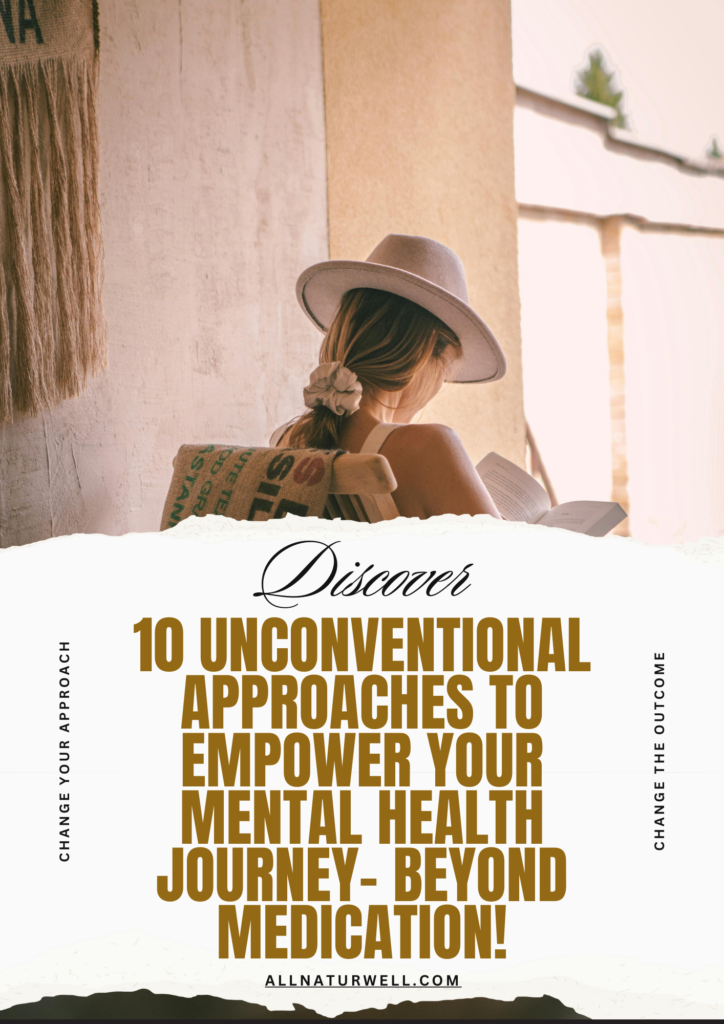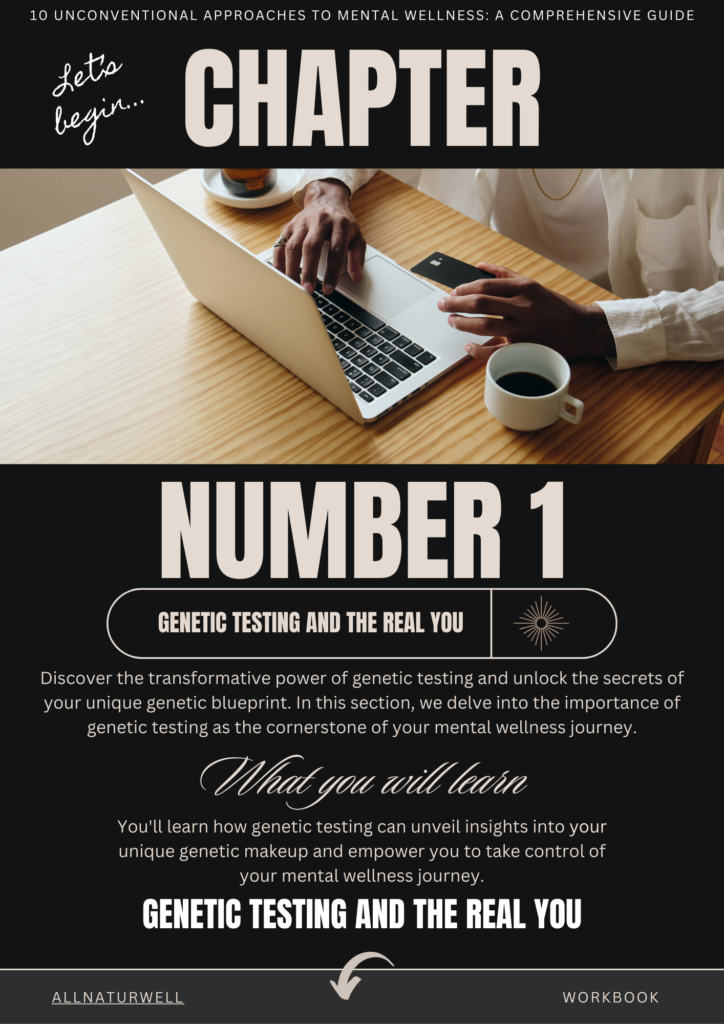The Vital Link: Vitamin D and Magnesium for Individuals with ADHD
Understanding the Importance of Vitamin D and Magnesium
Living with Attention-Deficit Hyperactivity Disorder (ADHD) can be challenging, as individuals often struggle with focus, impulsivity and mood regulation. While various treatment options exist, understanding the role of essential nutrients in managing ADHD symptoms is crucial. In particular, two key nutrients, Vitamin D and Magnesium, have gained attention for their potential benefits in supporting individuals with ADHD.
This comprehensive guide will explore the significance of Vitamin D and magnesium, how they relate to ADHD and practical ways to optimize their intake for better symptom management and overall well-being.
The Vital Link: Vitamin D and Magnesium
The Role of Vitamin D in ADHD
Vitamin D, often referred to as the “sunshine vitamin,” is well-known for its role in bone health and calcium absorption. However, emerging research suggests that Vitamin D also plays a crucial role in the human brain. Here’s a brief overview of the facts surrounding Vitamin D’s impact on the brain:
The human brain contains Vitamin D receptors, which are proteins that can bind with Vitamin D molecules. These receptors are present in various regions of the brain, including the hippocampus, cortex and substantia nigra.
Neurotransmitter Regulation: Vitamin D receptors in the brain play a role in the regulation of neurotransmitters, which are chemical messengers that transmit signals between brain cells. Studies have shown that Vitamin D can modulate the production and release of neurotransmitters such as dopamine, serotonin and glutamate.
Neuroprotection and Anti-Inflammatory Effects: Vitamin D exhibits neuroprotective properties, which means it helps protect brain cells from damage and promotes their survival. It also has anti-inflammatory effects in the brain, reducing inflammation that can contribute to neurological disorders.
Brain Development and Plasticity: Adequate levels of Vitamin D during prenatal and early childhood stages are crucial for proper brain development. Vitamin D influences the growth and differentiation of neurons, the formation of synapses (connections between brain cells) and the overall structure of the brain. It also plays a role in neuroplasticity, which is the brain’s ability to adapt and reorganize itself.
Cognitive Function and Mental Health: Vitamin D deficiency has been associated with cognitive impairments and an increased risk of various neurological and psychiatric conditions, including dementia, depression, schizophrenia and multiple sclerosis. Adequate Vitamin D levels have been linked to better cognitive performance, mood regulation and overall mental well-being.
Potential Links to Neurological Disorders: Research suggests that Vitamin D may have a role in reducing the risk or severity of certain neurological disorders. Studies have explored its potential involvement in conditions such as Alzheimer’s disease, Parkinson’s disease, autism spectrum disorder and attention-deficit/hyperactivity disorder (ADHD). However, more research is of course needed to establish definitive causation and treatment implications.
In conclusion, it can be said Vitamin D is not only important for bone health but also plays a vital role in the human brain. Its receptors and actions within the brain have implications for neurotransmitter regulation, neuroprotection, brain development, cognitive function and mental health. Maintaining adequate Vitamin D levels through sunlight exposure, dietary sources and supplementation when necessary may contribute to optimal brain health and function. Further research is ongoing to deepen our understanding of Vitamin D’s impact on the brain and its potential therapeutic applications in neurological disorders.
In the meantime, get outside in the sun! Just 20 minutes in the morning – as soon as you can in the morning – and 20 minutes in the late afternoon can make a differance. (And avoid that sunscreen stuff. Let your skin drink in those rays. Also understand that you do NOT have to be in the direct rays of the sun to reap it’s harvest. Sit on the porch, sunny or not, for twenty minutes while drinking your morning tea and surfing tictok. Set a timer and enjoy the morning. No stress.)
The Vital Link: Vitamin D and Magnesium
The Link
The link between Vitamin D and ADHD has been a topic of growing interest in recent years. Research suggests that there may be an association between Vitamin D deficiency and the development or severity of ADHD symptoms. Several studies have observed a higher prevalence of Vitamin D deficiency in individuals with ADHD compared to the general population. Furthermore, Vitamin D receptors are present in areas of the brain associated with ADHD and Vitamin D plays a role in neurotransmitter regulation and brain development.
While the exact mechanisms underlying this link are not yet fully understood, it is hypothesized that Vitamin D deficiency may contribute to altered brain function, neurotransmitter imbalances and impaired cognitive processes seen in ADHD. However, it’s important to note that more research is needed to establish a definitive causal relationship and determine the potential benefits of Vitamin D supplementation for ADHD management. Nonetheless, optimizing Vitamin D levels through safe sun exposure, dietary sources or supplementation, should be a consideration for individuals diagnosed with ADHD.
By the way: fun fact: Women with vitamin D deficiency experience more weight gain that is nearly impossible to lose. Just saying…
Vitamin D Deficiency and ADHD Symptoms
Vitamin D deficiency has been associated with various adverse health effects and its potential impact on ADHD symptoms has gained attention. Research suggests that individuals with ADHD may be more likely to have lower Vitamin D levels compared to those without the condition. Vitamin D deficiency has been linked to increased severity of ADHD symptoms, including difficulties with attention, impulsivity and mood regulation.
While the exact mechanisms are still being explored, Vitamin D is known to play a role in neurotransmitter regulation and brain development, which are both relevant to ADHD. It is important to note that Vitamin D deficiency is not the sole cause of ADHD, and addressing it alone may not entirely alleviate symptoms. However, optimizing Vitamin D levels through appropriate supplementation, dietary changes and daily sunlight exposure, may contribute to improved overall well-being and potentially help manage ADHD symptoms more effectively. And it’s definetly an easy place to begin.
Start Your Research Here – Vitamins D3 and K2
The Vital Link: Vitamin D and Magnesium
Optimizing Vitamin D Intake
Optimizing Vitamin D intake is essential for individuals with ADHD, as it may contribute to better symptom management and overall well-being. Here are some strategies to consider for optimizing Vitamin D intake:
Sunlight Exposure: Spending time outdoors and exposing the (bare) skin to sunlight can stimulate the body’s natural production of Vitamin D. Aiming for 10 to 30 minutes of sunlight exposure on the arms, legs and face a few times a day is great. Remember, vitamin D3 is the single most important nutrient in human body. It’s the only vitamin that a human being makes on our own and we can only make it from sunlight and cholesterol. So get your body into the sun as often as you can and make it part of a habitual routine, starting now!
Dietary Sources: Include Vitamin D-rich foods in your diet, such as fatty fish (salmon, mackerel, sardines), egg yolks and mushrooms – Lion’s Mane in particular. While dietary sources may not provide sufficient amounts alone, incorporating them into a balanced diet can contribute to overall Vitamin D intake.
Supplementation: If blood tests indicate low Vitamin D levels or if sunlight exposure and dietary sources are limited, supplementation may be necessary. Consult with a healthcare professional to determine the appropriate dosage and form of Vitamin D supplementation tailored to your individual needs. The doctor will give you a 25-Hydroxy Vitamin D Test and examine the results.
Here’s what they may look like. It’s important to have this test done so you know where you stand. Vitamin D deficiency can lead to a number of serious health issues.
- deficiency: less than 30 nmol/L (12 ng/mL)
- potential deficiency: between 30 nmol/L (12 ng/mL) and 50 nmol/L (20 ng/mL)
- normal levels: between 50 nmol/L (20 ng/mL) and 125 nmol/L (50 ng/mL)
- high levels: higher than 125 nmol/L (50 ng/mL)
Professional Guidance: Working with healthcare professionals, such as doctors or nutritionists, can provide personalized guidance on optimizing Vitamin D intake for individuals with ADHD. They can assess your specific needs, consider potential interactions with other medications or conditions and monitor Vitamin D levels over time.
Remember, individual requirements for Vitamin D may vary and it is important to strike a balance between optimizing intake and avoiding excessive supplementation. Consulting with healthcare professionals ensures that Vitamin D optimization is tailored to your specific circumstances and aligned with your overall ADHD management plan.

Dietary sources of Vitamin D and supplementation options
Dietary sources of Vitamin D can be beneficial for individuals with ADHD in optimizing their nutrient intake. Some food sources that are naturally rich in Vitamin D include fatty fish like salmon, mackerel and tuna, as egg yolks, mushrooms. While dietary sources alone may not provide sufficient levels of Vitamin D, incorporating these foods into a well-rounded diet can contribute to overall intake.
Vitamin D supplements are available in various forms, such as capsules, tablets or liquid drops.Take a vitamin D3 supplement or cod liver oil. It is crucial to consult with a healthcare professional to determine the appropriate dosage and form of Vitamin D supplementation tailored to individual needs. Healthcare professionals can also monitor Vitamin D levels over time to ensure optimal supplementation for individuals with ADHD.
Here’s a study you can read:
The Vital Link: Vitamin D and Magnesium
The Role of Magnesium in ADHD
Understanding Magnesium in the Human Brain
Magnesium is a vital mineral that plays numerous roles in the human body, including the brain. Here’s a brief overview of the facts surrounding magnesium’s impact on the brain:
Abundance in the Brain: Magnesium is the fourth most abundant mineral in the human brain. It is involved in various biochemical processes that support brain function and overall neurological health.
Neurotransmitter Regulation: Magnesium acts as a natural calcium channel blocker in the brain, helping to regulate the flow of calcium ions. This regulation is crucial for proper neurotransmitter release and function, including those involved in mood, cognition and memory.
Brain Plasticity and Synaptic Connectivity: Magnesium plays a role in modulating synaptic plasticity, which is the brain’s ability to adapt, change and form new connections between neurons. Adequate magnesium levels support synaptic plasticity, which is vital for learning, memory and cognitive function.
Neuroprotective Effects: Magnesium exhibits neuroprotective properties by reducing oxidative stress, inflammation and excitotoxicity, which can damage brain cells. It helps maintain cellular integrity and supports overall brain health.
Mood Regulation and Mental Health: Magnesium has been linked to mood regulation and mental health. Low levels of magnesium have been associated with an increased risk of depression, anxiety and other psychiatric disorders. Magnesium supplementation has shown promise in improving mood and reducing symptoms in certain conditions. ADHD, Bipolar disorder and RSD among them.
Sleep and Circadian Rhythm Regulation: Magnesium plays a role in the regulation of sleep patterns and the body’s internal clock. It helps facilitate the production of melatonin, a hormone that regulates sleep-wake cycles. Adequate magnesium levels may contribute to better sleep quality and a well-regulated circadian rhythm.
Potential Links to Neurological Disorders: Magnesium has been studied for its potential therapeutic benefits in various neurological disorders, including migraines, epilepsy, Alzheimer’s disease and Parkinson’s disease. However, more research is needed to establish definitive causation and treatment implications.
In conclusion we understand that Magnesium is a crucial mineral for brain health and function. Its involvement in neurotransmitter regulation, synaptic plasticity, neuroprotection, mood regulation and sleep makes it an essential nutrient for overall brain well-being. Maintaining adequate magnesium levels through a balanced diet that includes magnesium-rich foods like nuts, seeds, leafy greens and whole grains is important. In some cases, magnesium supplementation may be considered to optimize levels.
Further research is ongoing to deepen our understanding of magnesium’s impact on the human brain and its potential therapeutic applications in neurological disorders. These are studies we want to follow closely.
The Vital Link: Vitamin D and Magnesium
Optimizing Magnesium Intake
Optimizing magnesium intake is important for individuals with ADHD as it may contribute to better symptom management and overall well-being. Here are some strategies to consider for optimizing magnesium intake:
Dietary Sources: Include magnesium-rich foods in your diet, such as nuts (almonds and cashews), seeds (pumpkin and sunflower seeds), legumes and leafy greens (spinach and kale), whole grains (brown rice and quinoa) and dark chocolate. These foods can provide a natural source of magnesium to support overall intake.
Balanced Diet: Adopting a well-rounded diet that includes a variety of nutrient-rich foods can help ensure sufficient magnesium intake. Focus on consuming a diverse range of fruits, vegetables, lean proteins and healthy fats.
Supplementation: In some cases, magnesium supplementation may be necessary, especially for individuals with known deficiencies or those with limited access to magnesium-rich foods. Consult with a healthcare professional to determine the appropriate dosage and form of magnesium supplementation tailored to your individual needs.
Professional Guidance: Working with healthcare professionals, such as doctors or nutritionists can provide personalized guidance on optimizing magnesium intake for individuals with ADHD. They can assess your specific needs, consider potential interactions with other medications or conditions and monitor magnesium levels over time.
It’s important to note that magnesium intake must be balanced and in accordance with recommended daily allowances. Excessive magnesium intake can lead to adverse effects. Striking the right balance by incorporating magnesium-rich foods into a balanced diet and considering supplementation, under medical guidance, can contribute to improved overall well-being and potentially help manage ADHD symptoms more effectively.
Practical Lifestyle Strategies
1.) Sunlight Exposure and Outdoor Activities: The benefits of outdoor activities for Vitamin D production and ADHD symptom management include: Spending time outdoors. Being outside allows the body to absorb sunlight, which triggers the production of Vitamin D in the skin.
Additionally, outdoor activities promote physical exercise, which has been shown to enhance focus, attention and impulse control in individuals with ADHD. Being in nature also provides a calming and sensory-rich environment, reducing stress and promoting mental well-being.
2.) Get Fresh, Clean Fish Into Your Diet. I always suggest odering fresh fish rather than try to select your own. Most of us simply don’t know how to choose good fish. So don’t waste your time or your money. Just do a bit of research and select a starting point. Here are a few companies to look into.
Oshen Salmon / New York’s Delicacy
3.) Go To The Doc: Ask for a 25-Hydroxy Vitamin D Test and examine the results with him/her. Knowing if you’re deficiant is a step forward! Follow the doc’s advice and off you go.
The Vital Link: Vitamin D and Magnesium
Supplementation and Nutrient Combinations
Supplementation can be a valuable tool to support nutrient intake for individuals managing ADHD. While it’s best to prioritize obtaining nutrients through a balanced diet, certain circumstances may warrant the need for supplementation. When considering supplementation, it’s important to consult with healthcare professionals who can assess individual needs and provide appropriate guidance. Nutrient combinations, such as Vitamin D and magnesium, can be beneficial as they work synergistically to support brain health and function. Combining nutrients that complement each other’s absorption and utilization can enhance their effectiveness.
However, it’s crucial to ensure the dosage and form of supplementation are appropriate for the individual’s specific needs, as excessive intake or imbalanced nutrient combinations can have adverse effects. Professional guidance is essential to determine the right supplementation approach that aligns with overall ADHD management and addresses specific nutrient deficiencies, if present.
When starting vitamin D supplementation for ADHD, it’s important to consider the following factors to ensure optimal effectiveness and safety—and we at AllNaturWell are here to guide you through every step:
Check Your Levels: Have your vitamin D levels tested before starting supplementation to determine if you’re deficient and what dosage is appropriate. Excess vitamin D can lead to toxicity.
Magnesium Support: Vitamin D requires magnesium to be properly activated in the body. If magnesium levels are low, vitamin D may not work effectively. Adding magnesium-rich foods or a supplement may help.
Balance with Other Nutrients: Vitamin D interacts with calcium and vitamin K2. High doses of vitamin D without enough K2 can cause calcium to deposit in tissues instead of bones, potentially leading to issues like arterial calcification.
Monitor Mood and Focus: While vitamin D may support brain health, it may not address all ADHD symptoms alone. Pay attention to whether it improves focus, mood, or energy over time, and track these changes.
Sunlight and Lifestyle Factors: Supplementation is only part of the equation. Regular exposure to sunlight, exercise, and a balanced diet rich in omega-3 fatty acids, which are also beneficial for ADHD, can amplify the effects of vitamin D.
Partner with AllNaturWell: Our team at AllNaturWell will help you interpret your nutritional needs and guide you in balancing vitamin D with other essential nutrients like magnesium and vitamin K2. We’ll provide personalized support and strategies to ensure your supplementation is safe, effective, and tailored to your wellness goals.
By considering these factors and working with us, you can take a holistic approach to managing ADHD and improving your overall well-being.
Suppliments To Consider
YOU MAY BE INTERESTED IN:
Disclaimer: The information and/or products mentioned in these article are provided as information resources only and are not to be used or relied on to diagnose, treat, cure or prevent any disease. The statements made in this article have not been evaluated by the Food and Drug Administration. Any products mentioned are not intended to diagnose, treat, cure, or prevent any disease, but rather to be considered as an informational resource only to encourage critical thinking and personal research. The information in this article is intended for educational purposes only. The information is not intended to replace medical advice offered by licensed medical physicians. Please consult your doctor or health care practitioner for any and all medical advice.
and don't forget to sign up for our weekly newsletter. it's free!

52 Weeks, 52 Topics! Get Our Latest ‘Stay Well’ Newsletter Every Monday And Start Your Week Off AllNaturWell. A New Tip, A New Study Revealed, A New Product Reviewed. Get It Right To Your Inbox Weekly. No Need To Wait. It’s Free!






